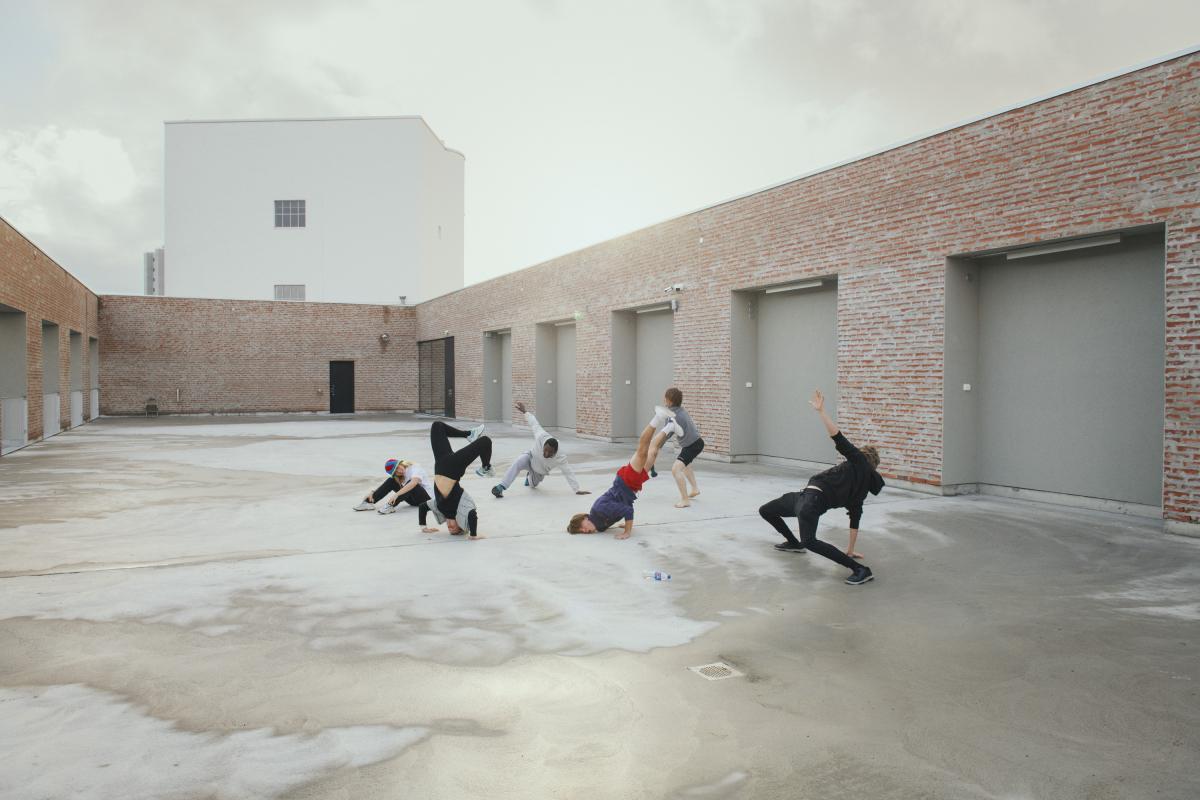Arts are the way to a more ecological and socially fair future – Uniarts Helsinki’s views on how to develop EU Horizon programmes further
With the grand challenges and systemic crises facing European and global society today and in the future, the University of the Arts Helsinki highlights the essential role of the social sciences, arts and humanities in recognising, addressing, solving and dealing with them.

In December 2022, the European Commission launched the largest public consultation ever held on the past, present and future of the EU’s Horizon research and innovation programmes 2014–2027.
Stakeholders, Uniarts Helsinki among them, were able to share their views on the performance of Horizon 2020 and Horizon Europe, as well as shaping the strategic orientations for the Horizon Europe Strategic Plan 2025-2027. Below you can find Uniarts Helsinki’s views on how to develop the programmes further.
More focus on the role of the social sciences and humanities, including the arts
The social sciences and humanities (SSH) are pivotal in integrating social, economic, human and cultural perspectives in all research and assessing research impacts. Uniarts Helsinki highly appreciate the aim to fully integrate these disciplines throughout the Horizon Europe programme. However, to give arts, culture and creative industries the position they deserve among these disciplines, Uniarts Helsinki suggests using the acronym SSAH throughout the programme documents.
The role of the SSAH should be strengthened even further throughout the programme pillars, reflected in the budget allocated to the SSAH and through more explicit mentions in call texts. It should also be manifest in the profiles of the evaluation panels.
Arts research contributes to developing innovative approaches to societal challenges
Arts research can contribute significantly to evidence-based policymaking, as well as to developing innovative approaches addressing diverse societal challenges such as democracy and openness, migration, inclusiveness and equality, or social and ecologic sustainability. Uniarts Helsinki’s strategy sees arts as part of the solution to the ecological sustainability crisis.
Uniarts Helsinki values the cross-disciplinary and cross-sectoral nature of the Clusters and the recognition of culture and creative industries within Cluster 2, which targets mainly SSAH disciplines.
Cluster 2 should give a stronger role to arts and culture also in actions related to democratic governance and social and economic transformations, along with those related to cultural heritage and the creative economy. This means explicitly recognising them in their own right, and not just as a means to an end, for example, for promoting STEM education and attracting more women into it (HORIZON-CL2-2023-HERITAGE-01-08).
Arts and culture increase social cohesion, health and well-being and promote sustainability
Arts and culture have the power to facilitate understanding and therefore shared values and mutual trust among people and cultures, to advance social cohesion and inclusiveness, to increase health and well-being as well as to promote sustainability, and to generate innovation. Therefore, the Uniarts Helsinki would also like to see them taken into account explicitly within the other Clusters of Horizon Europe, for example: Cluster 1 for health research should include the role of arts and culture as a source of health and wellbeing.
Arts and culture have proven beneficial impacts, which in turn increase people’s ability to stay active and healthy in a rapidly changing society. They can be a source of patient empowerment, thus supporting traditional healthcare. According to the World Health Organization, arts can potentially impact both mental and physical health for example by:
- affecting the social determinants of health
- supporting child development
- encouraging health-promoting behaviours
- supporting caregiving and care for people with acute conditions
- helping to support people with neurological disorders
This has been further evidenced by the CultureForHealth Report, according to which “unleashing the potential health and well-being benefits of culture across the European Union requires concerted action that can be grouped under the following four headings:
- Dedicated strategic and financial support
- Knowledge and awareness building
- Training and peer learning
- Localising culture, health and well-being R&D and policy discussions”.
All these are, for their part, achievable through Horizon Europe actions and the inclusion of arts and culture in Cluster 1.
As noted in Article 7 of the Regulation establishing Horizon Europe, research from the social sciences and humanities must be integrated across the thematic clusters of the programme. This should mean all the SSAH disciplines and proper mainstreaming.
Arts as a tool to better involve European citizens in the low-carbon transition
Clusters 5 (climate, energy and mobility) and 6 (food, bioeconomy, natural resources, agriculture and environment) should also explicitly recognise the potential that arts offer, for example as a tool for making visible and affecting values, attitudes and behaviour on the way to a more ecological and socially fair future, and as a way of better involving European citizens in the low-carbon transition and in the design and implementation of related policy measures.
As the EU Work Plan for Culture puts it, “culture, including the arts and cultural heritage, can play a key role in triggering climate action and promoting sustainable consumption and production patterns. Culture can take an active role in climate action and stimulate a change of mindset towards the climate crisis”.
In addition to mentioning arts and the other SSAH disciplines explicitly in work programmes and including SSAH professionals in all evaluation panels, the suggestions above require involving them already during the planning of the next calls of all the Clusters.
We at Uniarts Helsinki believe that art, artistic thinking and creativity are tools that help us build an equal and sustainable world, and this can be strengthened even further, when these are placed in new unexpected contexts by including arts professionals in multi-disciplinary teams. Artistic thinking has the capacity to bring about new and unexpected questions that eventually can provide completely new solutions to the major problems of contemporary societies.